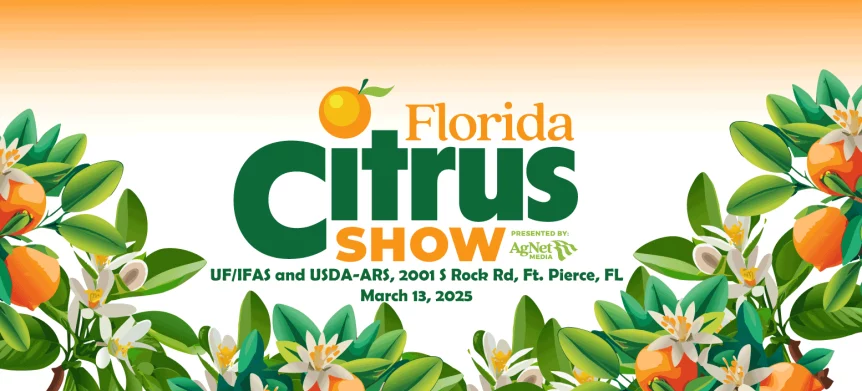
By Clint Thompson
The Florida Citrus Show is less than a month away.
Southeast specialty crop producers, including from Florida, Georgia and Alabama, are invited to attend this year’s show, scheduled for March 13 in Fort Pierce, Florida.
While citrus is a major component of the daylong show, there is a vegetable seminar program scheduled for those wanting to learn more. Those interested in attending should note the vegetable seminar program will start at 1 p.m.
This year’s vegetable seminar program will cover various areas of vegetable production with an emphasis on pest and disease management.
The seminars will be presented by scientists at the U.S. Department of Agriculture Agricultural Research Service and University of Florida Institute of Food and Agricultural Sciences.
USDA-ARS
For example, Clive Bock with the U.S. Department of Agriculture (USDA) Agricultural Research Service (ARS), will speak about the area-wide pest management to control vegetable vectors. He’s one of several USDA-ARS scientists who will be speaking in the first part of the seminar session.
UF/IFAS
University of Florida Institute of Food and Agricultural Sciences (UF/IFAS) researchers will handle the latter part, starting with Johan Desaeger, who will highlight nematode management in pepper production. Other topics include anaerobic soil disinfestation for disease management; a smartphone application to predict soil moisture; pepper breeding; thrips and pepper weevil management; as well as weed control in peppers.
The vegetable seminar program will be held from 1 p.m. to 3 p.m.
The show will be hosted at the University of Florida Institute of Food and Agricultural Sciences Indian River Research and Education Center and the U.S. Department of Agriculture (USDA), Agricultural Research Service, U.S. Horticultural Research Laboratory in Fort Pierce, Florida.
Registration is complimentary for commercial producers, farm owners and managers, crop consultants, association executives and board members, along with the government, legislative and agricultural research communities.
Click here for additional information about the vegetable seminar program.










